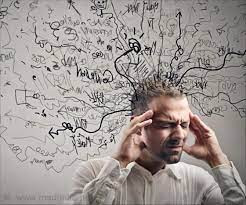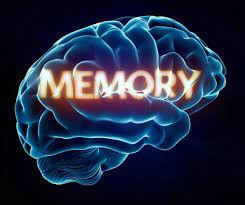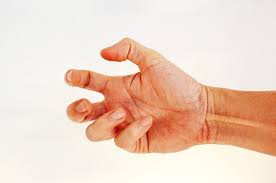Definisi
Delirium adalah gangguan kondisi mental yang mengakibatkan kebingungan berpikir dan gangguan kesadaran terhadap lingkungan. Gangguan ini biasanya bersifat sementara dan dapat pulih seperti semula. Delirium umumnya muncul tiba-tiba dalam beberapa jam atau beberapa hari. Delirium dapat terjadi pada semua usia, namun lebih sering pada orang tua atau orang dengan riwayat gangguan mental.
Banyak faktor yang dapat memengaruhi delirium, seperti penyakit berat atau berlangsung lama, ketidakseimbangan elektrolit (seperti kadar natrium rendah), obat-obatan, infeksi, operasi, alkohol, keracunan obat, atau kondisi sakau.
Gejala delirium mirip dengan demensia, sehingga keterangan keluarga mengenai perubahan kondisi yang terjadi pada pasien akan membantu dokter membuat diagnosis yang tepat.
Penyebab
Delirium terjadi ketika pengiriman dan penerimaan sinyal di otak terganggu. Gangguan ini dapat disebabkan oleh beragam faktor yang membuat otak menjadi rentan dan memicu kerusakan aktivitas otak.
Delirium dapat memiliki satu atau lebih penyebab, seperti kombinasi kondisi medis dan toksisitas obat. Namun, terkadang dapat juga tidak ditemukan penyebab pada delirium. Beberapa kemungkinan penyebab delirium antara lain:
- Obat-obatan tertentu atau keracunan obat
- Alkohol atau putus obat
- Kondisi medis tertentu, seperti stroke, serangan jantung, penyakit paru-paru atau liver yang memburuk, serta cedera karena jatuh
- Ketidakseimbangan elektrolit, seperti natrium atau kalsium rendah
- Penyakit stadium akhir yang parah
- Demam dan infeksi akut, terutama pada anak-anak
- Infeksi saluran kemih, infeksi paru-paru, terutama pada orang tua
- Keracunan karbon monoksida, sianida, atau racun lainnya
- Malnutrisi atau dehidrasi
- Kurang tidur atau tekanan emosional yang parah
- Nyeri
- Operasi atau prosedur medis lainnya yang menggunakan anestesi
Beberapa obat tunggal atau kombinasi obat dapat memicu delirium, contohnya:
- Obat nyeri
- Obat tidur
- Obat gangguan mood, seperti kecemasan dan depresi
- Obat alergi (antihistamin)
- Obat asma
- Obat anti radang steroid
- Obat penyakit Parkinson
- Obat kejang
Faktor Risiko
Setiap kondisi yang memerlukan perawatan di rumah sakit, terutama dalam perawatan intensif atau setelah operasi, dapat meningkatkan risiko delirium. Begitu juga dengan perawatan orang tua di panti jompo. Delirium lebih sering terjadi pada orang tua. Kondisi lain yang meningkatkan risiko delirium meliputi:
- Gangguan otak seperti demensia, stroke, atau penyakit Parkinson
- Riwayat delirium sebelumnya
- Gangguan penglihatan atau pendengaran
- Masalah medis lainnya
Gejala
Tanda dan gejala delirium biasanya dapat muncul dalam beberapa jam atau hari. Tanda dan gejala tersebut dapat hilang timbul atau berfluktuasi sepanjang hari. Gejala cenderung lebih buruk pada malam hari saat gelap. Tanda dan gejala utama delirium antara lain:
Berkurangnya kesadaran terhadap lingkungan. Hal ini dapat mengakibatkan:
- Ketidakmampuan untuk fokus pada suatu topik atau beralih topik
- Terjebak pada sebuah ide dan sulit menanggapi pertanyaan atau percakapan
- Mudah teralihkan oleh hal-hal yang tidak penting
- Menarik diri, dengan sedikit atau tanpa respons terhadap lingkungan
Kemampuan berpikir yang buruk (gangguan kognitif). Hal ini dapat berupa:
- Ingatan yang buruk, terutama tentang peristiwa baru
- Disorientasi, seperti tidak tahu di mana Anda berada atau tidak tahu siapa Anda
- Kesulitan berbicara atau mengingat kata-kata
- Bicara tidak jelas
- Kesulitan memahami ucapan
- Kesulitan membaca atau menulis
Perubahan perilaku. Hal ini termasuk:
- Melihat hal-hal yang tidak ada (halusinasi)
- Gelisah, agitasi, atau berperilaku agresif
- Memanggil, merintih, atau membuat suara-suara lain
- Menjadi pendiam dan menarik diri, terutama pada orang tua
- Gerakan melambat atau lesu
- Pola tidur terganggu
- Siklus tidur yang terbalik
Gangguan emosional. Hal ini dapat muncul sebagai:
- Kecemasan atau ketakutan
- Depresi
- Iritabilitas atau mudah marah
- Perasaan gembira berlebihan (euforia)
- Apatis
- Perubahan suasana hati yang cepat dan tidak terduga
- Perubahan kepribadian
Para ahli telah menemukan tiga jenis delirium. Jenis-jenis tersebut beserta gejalanya adalah:
- Delirium hiperaktif. Tipe ini adalah yang paling mudah dikenali. Gejalanya meliputi gelisah, misalnya mondar-mandir, agitasi, perubahan mood yang cepat, halusinasi, dan sulit ditenangkan.
- Delirium hipoaktif. Gejalanya berupa berkurang atau tidak aktifnya gerak motorik, kelesuan, ngantuk yang tidak normal, atau tampak linglung.
- Delirium campuran. Tanda dan gejalanya meliputi tipe hiperaktif dan hipoaktif. Pasien tipe ini dapat dengan cepat beralih dari keadaan hiperaktif ke hipoaktif.
Diagnosis
Seorang dokter dapat mendiagnosis delirium berdasarkan riwayat medis, tes status mental, dan identifikasi faktor-faktor yang kemungkinan berperan. Pemeriksaan yang dilakukan antara lain:
- Penilaian status mental. Dokter akan menilai kesadaran, perhatian, dan pemikiran pasien. Hal ini dapat dilakukan secara informal melalui percakapan atau melalui skrining keadaan mental, persepsi, dan memori
- Pemeriksaan fisik dan neurologis (saraf). Dokter melakukan pemeriksaan fisik untuk memeriksa tanda-tanda penyakit yang mungkin mendasarinya. Pemeriksaan neurologis seperti pemeriksaan penglihatan, keseimbangan, koordinasi, dan refleks dapat membantu menentukan apakah stroke atau penyakit neurologis lain lah yang menyebabkan delirium.
- Pemeriksaan lainnya. Dokter dapat melakukan pemeriksaan darah, urin, atau tes diagnostik lainnya. Tes pencitraan otak dapat dilakukan ketika diagnosis tidak dapat ditegakkan dengan informasi yang ada
Berdasarkan Pedoman Manual Diagnostik dan Statistik Gangguan Mental edisi 5, kriteria diagnosis delirium adalah:
- Gangguan perhatian seperti sulit mempertahankan perhatian, serta gangguan kesadaran terhadap lingkungan
- Perubahan kognitif, meliputi gangguan ingatan, disorientasi, dan gangguan bahasa
- Gangguan terjadi dalam waktu singkat dan fluktuatif setiap harinya
- Ada bukti bahwa gangguan terjadi karena efek psikologis akibat kondisi medis tertentu seperti intoksikasi obat
Tatalaksana
Tujuan pertama pengobatan delirium adalah mengatasi penyebab atau pemicu yang mendasari, misalnya dengan menghentikan penggunaan obat tertentu, mengatasi ketidakseimbangan elektrolit, atau mengobati infeksi. Perawatan kemudian berfokus pada menciptakan lingkungan yang baik untuk menyembuhkan dan menenangkan pikiran pasien.
Perawatan suportif
Perawatan suportif bertujuan untuk mencegah komplikasi melalui:
- Melindungi jalan napas
- Pemberian cairan dan nutrisi
- Membantu pasien bergerak
- Mengobati rasa sakit
- Mengatasi inkontinensia (sulit menahan buang air)
- Menghindari pengekangan fisik seperti ikatan pada tangan dan kaki
- Menghindari perubahan lingkungan dan perubahan pengasuh bila memungkinkan
- Mendorong keterlibatan keluarga atau orang yang dikenal untuk melatih kemampuan komunikasi pasien
Obat-obatan
Jika Anda adalah anggota keluarga atau pengasuh pasien delirium, konsultasikan dengan dokter mengenai obat apa saja yang dapat memicu delirium. Obat-obatan tertentu mungkin diperlukan untuk mengurangi rasa nyeri yang dapat menyebabkan delirium.
Jenis obat lain dapat membantu menenangkan pasien yang agitasi, kebingungan, atau salah mengenali lingkungan yang dapat mengarah pada ketakutan atau halusinasi berat. Obat-obatan ini biasanya diperlukan ketika ada kemungkinan pasien dapat membahayakan atau mengancam keselamatan orang lain. Obat-obatan ini akan dikurangi dosisnya atau dihentikan ketika gejala delirium hilang.
Komplikasi
Delirium dapat berlangsung hanya beberapa jam atau minggu atau bahkan bulan. Jika masalah yang memicu delirium ditangani, waktu pemulihan akan lebih cepat. Tingkat pemulihan bergantung pada kondisi kesehatan dan status mental sebelum delirium. Orang dengan demensia misalnya, dapat mengalami penurunan memori dan kemampuan berpikir yang signifikan setelah pulih dari episode delirium. Orang dengan kesehatan yang lebih baik lebih berpeluang pulih sepenuhnya.
Pada orang dengan penyakit serius, kronis, atau yang sudah tahap akhir, kemampuan berpikir atau fungsi yang mereka miliki sebelumnya bisa saja tidak kembali normal. Delirium pada orang yang sakit parah juga lebih mungkin menyebabkan penurunan kesehatan secara umum, pemulihan yang buruk pasca operasi, kebutuhan perawatan yang rutin, serta peningkatan risiko kematian.
Pencegahan
Tindakan yang paling penting untuk mencegah delirium adalah mengatasi hal yang memicu delirium. Lingkungan rumah sakit dapat menjadi salah satu faktor pemicu delirium karena adanya perubahan ruangan, prosedur invasif, terkadang berisik, pencahayaan yang buruk karena kurangnya cahaya alami, serta susah tidur pada sebagian pasien. Edukasi mengenai kebiasaan dan cara tidur yang baik dapat membantu pasien untuk tetap tenang dan berorientasi dengan baik, serta mencegah masalah medis atau komplikasi lain dapat membantu mencegah atau mengurangi tingkat keparahan delirium.
Jika Anda adalah keluarga atau pengasuh pasien yang berisiko atau baru pulih dari delirium, Anda dapat melakukan langkah-langkah berikut untuk membantu meningkatkan kesehatan pasien dan mencegah kekambuhan delirium, melalui:
Mendukung kebiasaan tidur yang baik, antara lain:
- Jaga lingkungan agar tetap tenang
- Jaga pencahayaan di dalam ruangan agar tidak gelap
- Jaga suasana tidur bebas gangguan
- Bantu pasien untuk mengatur jadwal aktivitas sehari-harinya agar teratur
- Motivasi untuk kegiatan perawatan diri dan aktivitas seperti biasa di siang hari
Menjaga ketenangan dan orientasi, meliputi:
- Sediakan jam dan kalender lalu jelaskan pada pasien mengenai waktu dan tanggal pada hari itu
- Ceritakan secara sederhana tentang setiap perubahan aktivitas, seperti waktu makan siang atau waktu tidur
- Dekatkan benda atau gambar yang disukai pasien, namun tetap menjaga lingkungan agar tidak berantakan
- Berkomunikasi dengan lembut
- Ceritakan siapa Anda dan orang lain di sekitar pasien secara teratur
- Hindari argumen
- Berikan kenyamanan seperti sentuhan yang menenangkan bila diperlukan
- Minimalisasi kebisingan dan gangguan lainnya
- Menyediakan kacamata dan alat bantu dengar
Mencegah komplikasi penyakit, melalui:
- Memberikan obat yang tepat dengan jadwal yang teratur
- Memberikan cairan yang cukup dan diet sehat
- Motivasi untuk melakukan aktivitas fisik secara teratur
- Memberi perawatan segera untuk potensi masalah yang mungkin timbul seperti infeksi atau ketidakseimbangan elektrolit
Merawat orang dengan delirium dapat terasa menakutkan dan melelahkan. Sehingga, penting juga untuk memperhatikan kesehatan diri pengasuh pasien, melalui:
- Bergabung dengan kelompok sesama perawat pasien delirium
- Mempelajari lebih banyak tentang kondisi pasien
- Mencari informasi tentang perawatan pasien atau meminta bantuan sumber daya lain dari petugas kesehatan, organisasi nirlaba, layanan kesehatan masyarakat, atau lembaga pemerintah
- Meminta bantuan keluarga lain yang juga dikenali oleh pasien untuk merawat pasien agar Anda dapat beristirahat sejenak
Kapan harus ke dokter?
Jika keluarga, teman, atau orang yang sedang dalam perawatan Anda menunjukkan tanda-tanda atau gejala delirium, segera konsultasikan dengan dokter. Cerita Anda mengenai gejala, cara berpikir dan komunikasi pasien, serta kemampuan aktivitas pasien akan menjadi informasi penting untuk menentukan diagnosis yang tepat dan menemukan penyebabnya.
Pasien orang tua yang dirawat di rumah sakit atau yang tinggal di fasilitas perawatan jangka panjang (misalnya panti jompo) sangat berisiko mengalami delirium. Jika Anda melihat tanda dan gejala delirium pada seseorang di rumah sakit atau panti jompo, segera laporkan hal tersebut kepada staf perawat atau dokter.
Untuk informasi menarik seputar penyakit lainnya, silakan kunjungi tautan ini ya!
- dr Ayu Munawaroh, MKK
Delirium. (2020). Retrieved 30 November 2021, from https://www.mayoclinic.org/diseases-conditions/delirium/symptoms-causes/syc-20371386.
Alagiakrishnan K. (2019). Delirium. Retrieved 5 December 2020, from https://emedicine.medscape.com/article/288890-overview#a1.
Sudden confusion (delirium). (2021). Retrieved 5 December 2021, from https://www.nhs.uk/conditions/confusion/.
Badii C. (2019). What’s delirium and how does it happen?. Retrieved 5 December 2021, from https://www.healthline.com/health/delirium.
Griffin RM. (2020). Conditions that cause sudden confusion. Retrieved 5 December 2021, from https://www.healthline.com/health/delirium.
Echeverria MLR, Paul M. (2021) Delirium. StatPearls Publishing LLC. Retrieved 5 December 2021, from https://www.healthline.com/health/delirium.
Delirium. (2021). Retrieved 5 December 2021, from https://www.healthline.com/health/delirium.












